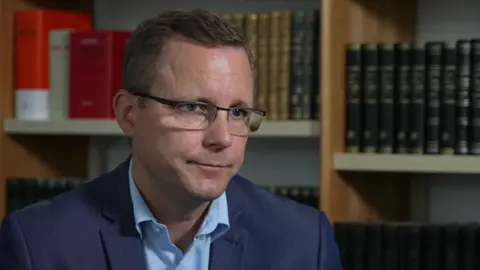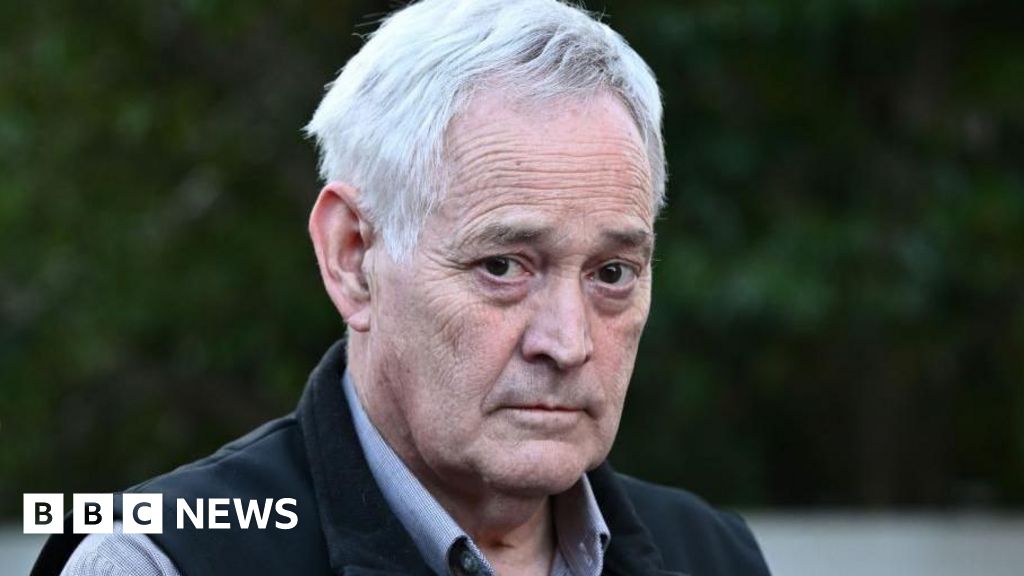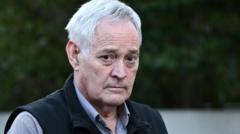In the small paradise of Antigua, residents are gripped by an unsettling wave of disappearances that has earned a reputation as a potential crisis. Patricia Joseph reflects on the ongoing agony of not knowing the fate of her mother, Hyacinth Gage, who disappeared six years ago. Hyacinth, 74, was last seen wearing her distinctive orange-lined raincoat as she left for a routine hospital visit, never to return.
Patricia describes the mental anguish she endures, remarking on the relentless questioning of what may have happened in her mother's final moments. Despite exhaustive family-led searches and inquiries, the mystery remains unsolved, deepening the despair of organized investigations that seem insufficient.
In just two years, at least nine people have vanished in Antigua, a concerning figure given the island's size and population of under 100,000. Experts suggest this rate stands out when compared to other Caribbean nations, where missing person statistics show greater accountability. For example, in neighboring St Kitts, nearly every missing person has been accounted for, in stark contrast to Antigua where many remain missing.
Entertainment of various theories about the disappearances has become a common coping mechanism among residents. While some suspect the ineffectiveness of the local police, others entertain darker possibilities, including organ trafficking or gang violence. Heightened suspicions were recently stirred by the tragic case of 9-year-old Chantel Crump, whose death has sparked public outcry and fears of deeper societal issues.
Acting Police Commissioner Everton Jeffers has acknowledged the need for improvement within the police department and is keeping an open mind regarding the underlying reasons for the missing persons trend, even as there are calls for external investigative assistance.
Adding to the emotional toll are other disappearances, including that of Roman Mussabekov, a Russian-Canadian tourist; Orden David, who vanished after a night out; and Gregory Bailey's son, Kevorn, who left home to meet an unknown caller. All these families share a similar heartbreak, grappling with uncertainty about the fate of their loved ones.
Whatever the causes may be, calls from citizens for urgent action resonate louder as they plead with authorities for swift measures that could help address the rising tide of unaccounted-for individuals. With crime and corruption reportedly running deep, families are increasingly left to fend for themselves, forming groups to seek support and highlight their plight amid a backdrop of instability.
The government has recently pledged to address these concerns with new measures, aiming to create a dedicated missing persons task force and equip law enforcement with specialized tools to assist in their endeavors. Nonetheless, victims' families are demanding real answers, signaling that more substantial action is necessary to confront the troubling epidemic of disappearances unfolding before them.
Patricia describes the mental anguish she endures, remarking on the relentless questioning of what may have happened in her mother's final moments. Despite exhaustive family-led searches and inquiries, the mystery remains unsolved, deepening the despair of organized investigations that seem insufficient.
In just two years, at least nine people have vanished in Antigua, a concerning figure given the island's size and population of under 100,000. Experts suggest this rate stands out when compared to other Caribbean nations, where missing person statistics show greater accountability. For example, in neighboring St Kitts, nearly every missing person has been accounted for, in stark contrast to Antigua where many remain missing.
Entertainment of various theories about the disappearances has become a common coping mechanism among residents. While some suspect the ineffectiveness of the local police, others entertain darker possibilities, including organ trafficking or gang violence. Heightened suspicions were recently stirred by the tragic case of 9-year-old Chantel Crump, whose death has sparked public outcry and fears of deeper societal issues.
Acting Police Commissioner Everton Jeffers has acknowledged the need for improvement within the police department and is keeping an open mind regarding the underlying reasons for the missing persons trend, even as there are calls for external investigative assistance.
Adding to the emotional toll are other disappearances, including that of Roman Mussabekov, a Russian-Canadian tourist; Orden David, who vanished after a night out; and Gregory Bailey's son, Kevorn, who left home to meet an unknown caller. All these families share a similar heartbreak, grappling with uncertainty about the fate of their loved ones.
Whatever the causes may be, calls from citizens for urgent action resonate louder as they plead with authorities for swift measures that could help address the rising tide of unaccounted-for individuals. With crime and corruption reportedly running deep, families are increasingly left to fend for themselves, forming groups to seek support and highlight their plight amid a backdrop of instability.
The government has recently pledged to address these concerns with new measures, aiming to create a dedicated missing persons task force and equip law enforcement with specialized tools to assist in their endeavors. Nonetheless, victims' families are demanding real answers, signaling that more substantial action is necessary to confront the troubling epidemic of disappearances unfolding before them.




















